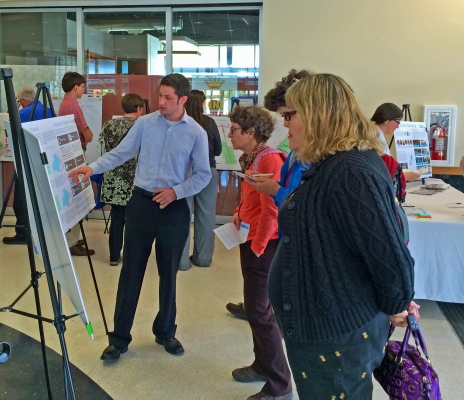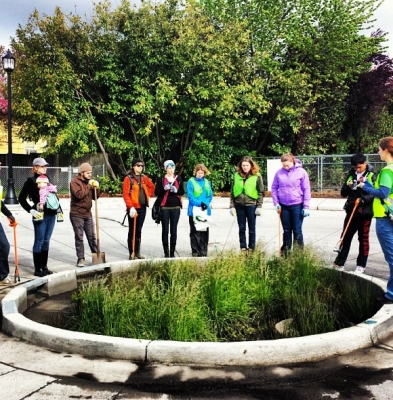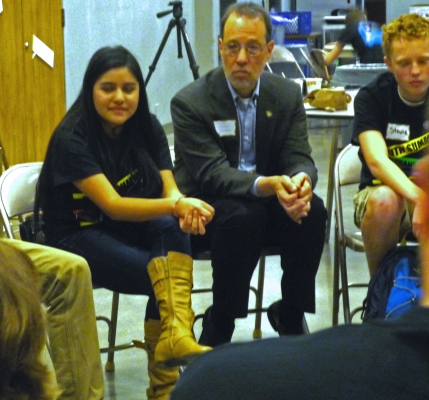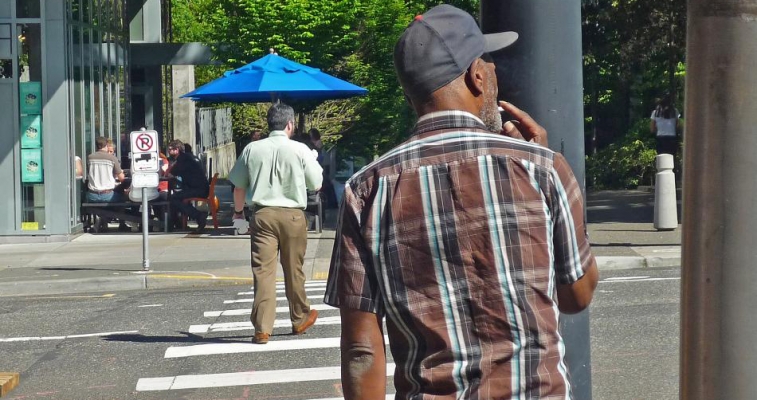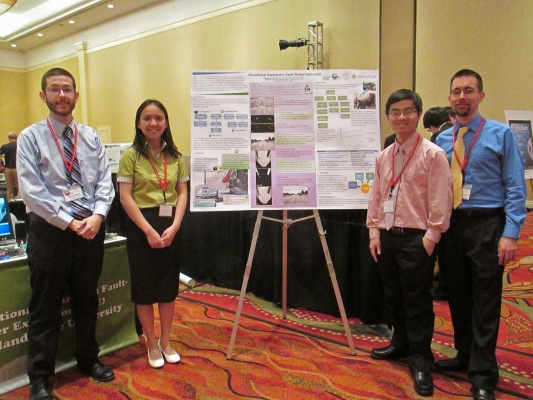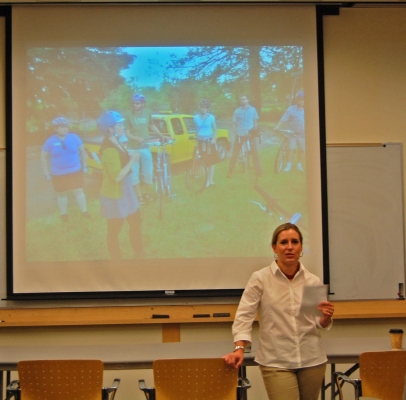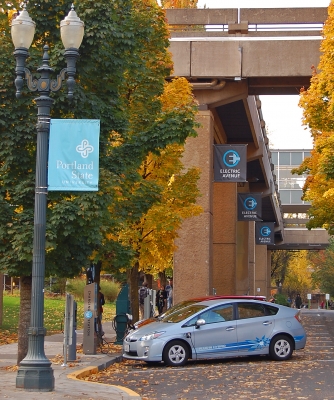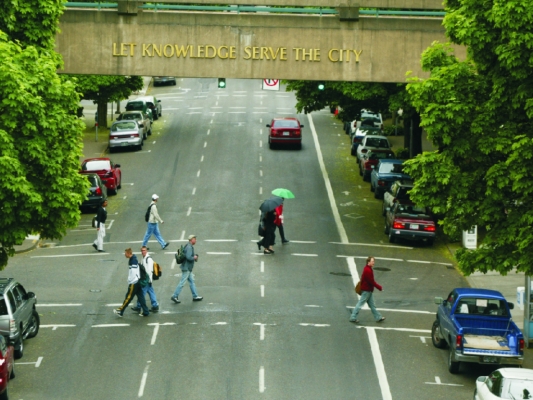Portland State University students in the Master of Urban and Regional Planning (MURP) program came up with some innovative transit solutions for the Salem-Keizer area, just south of Portland, Ore. in the Willamette Valley.
The Salem-Keizer transit provider, known as Cherriots, requested that a planning group come up with alternative forms of transit that would be a better fit for the study area. MURP students Darwin Moosavi, Brenda Martin, CJ Doxsee, Mike Sellinger, Lauren Wirtis and Matt Berggren took on the challenge as their capstone project.
The bus service currently provided by Salem-Keizer Transit is inefficient in the low-density neighborhoods of West Salem, South Salem, and Keizer. Buses in those neighborhoods often run half-full, or nearly empty, along looping, circuitous roads that lack an interconnected grid pattern.
The student team, Paradigm Planning, proposed a “flexible transit” system which can better serve this type of low-density suburban area.
Fixed-route transit is typical bus service, in which buses come to predefined stops at regularly scheduled intervals. Demand-responsive or paratransit, the opposite extreme, is an on-demand service typically reserved for the elderly or disabled, in which a rider calls to be picked up by a bus at home....

